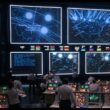An exclusive club with a hidden agenda
By Kayhan Barzegar, February 25, 2013
I began this Roundtable believing that the Nuclear Suppliers Group (NSG) is a discriminatory export-control regime, and my conviction hasn't wavered. Indeed, the Nuclear Non-Proliferation Treaty (NPT) is itself discriminatory at heart, and supplemental mechanisms like the NSG only compound the problem. As my colleague Rajiv Nayan correctly asserted in his final essay, the NSG focuses too much on the nonproliferation aspect of the treaty and too little on encouraging nuclear commerce.
For developing nations, the NSG has over time lost much of its relevance because it has not adapted to a changing world. Today, many developing countries are on the verge of major technological transformations. Their economies are becoming more advanced, and they require sources of energy like nuclear power to help them continue their development. The NSG should adapt to this new reality and make greater efforts to meet the expectations of the developing world.
Instead, the group continues to punish a country like Iran for its long-ago failure to report in a timely manner nuclear activities at the Natanz facility. Failures of this type are not unique; other countries have made the same mistakes and have been forgiven when the mistakes were rectified. Examples include Egypt, which in 2005 was cited by the International Atomic Energy Agency (IAEA) for failing to report on experiments and inventories at its Nuclear Chemistry Building, and South Korea, which, according to a 2004 agency report, had failed to disclose past research that could have contributed to a weapons program. In Iran's case, however, punishment has never stopped. (I'd like to emphasize that Iran's failure to disclose activities at the Natanz site was just that, a failure to disclose in a timely fashion — and not a serious violation that deserves ongoing harsh treatment by members of the NSG.)
Meanwhile, North Korea's recent nuclear test shines a light on the intrinsic discrimination within the NPT system. That is, it shows that a country determined to rebel against a discriminatory system cannot be deterred from its nuclear ambitions by international sanctions and mechanisms like the NSG, and indeed that harsh international pressure only makes matters worse. North Korea's test should serve as a wake-up call for those would sacrifice the original spirit of the NPT to a narrow set of political goals.
If it wishes to change with the times, the NSG should make its decision-making processes more transparent. It should transform itself into something other than an exclusive club with a hidden agenda, one that enforces its conditions ever more tightly. It should also extend membership to a greater number of developing countries. The developing world enjoys inadequate representation in the group, and this skewed membership is the crux of the group's problems. It creates mistrust between the developed and developing worlds and ultimately weakens the foundations of the treaty.
Here I diverge with my colleague Raymund Jose G. Quilop, who has expressed concern that new NSG members might behave in a fashion inconsistent with the group's principles and values. My question is: What principles and values? The values and principles that were created mostly to preserve Western dominance within the nonproliferation regime, and dominance over the legal and technical standards that are enforced by the IAEA? If these are the values and principles in question, behaving inconsistently with them ought to be considered a good thing.
Moreover, though new NSG members will certainly consider their national interests as they make decisions about nuclear commerce, they will also, over time, adapt to international norms as expressed through mechanisms like the NSG. And they will contribute to the group by bringing their own perspectives to bear on the group's decision-making process. Iran, for example, can share valuable lessons from its nuclear experience — lessons about developing countries' rights, regional cooperation in nuclear energy, and comprehensive regional disarmament.
An appropriate balance among the NPT's three pillars — nonproliferation, the peaceful use of nuclear energy, and comprehensive disarmament — can still be achieved, but only if NSG members and developing nations can establish a mutually beneficial basis for cooperation. Realizing the treaty's full potential requires that the distrust between the NSG and the developing world be mitigated.
Topics: Nuclear Energy, Nuclear Weapons
Share: [addthis tool="addthis_inline_share_toolbox"]














